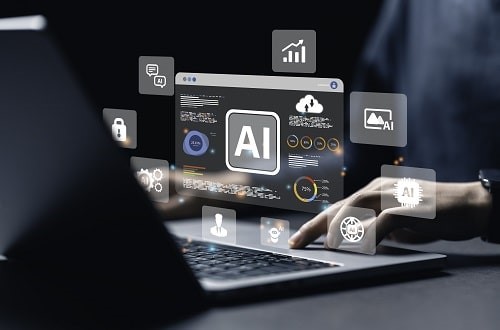Government policy will determine whether artificial intelligence (AI) displaces up to eight million UK jobs or brings significant wage and economic gains, the Institute for Public Policy Research (IPPR) has said in a recent report.
News
Pressure mounts on UK Government to protect jobs while harnessing benefits of AI
In its report, How Generative Artificial Intelligence Could Affect Work in the UK – and How to Manage It, the thinktank found that back office, entry-level and part-time jobs were at the greatest risk of being lost to automation, with women facing the most disruption.
 British Safety Council: "A strong, global regulatory framework is needed to ensure that AI, and its future development, is aligned with human and societal betterment." Photograph: iStock/Khanchit Khirisutchalual
British Safety Council: "A strong, global regulatory framework is needed to ensure that AI, and its future development, is aligned with human and societal betterment." Photograph: iStock/Khanchit Khirisutchalual
After analysing 22,000 tasks performed by UK workers, the IPPR said that 11 per cent were already exposed to automation in the first wave of generative AI adoption, which is already underway. This could increase to 59 percent of tasks in the second wave of adoption, as companies weave existing AI technologies more deeply into their processes, according to the report.
In a worst-case scenario, said the IPPR, 7.9 million jobs could eventually be lost to AI with no GDP gains for the UK economy. In a best-case scenario, however, all at-risk jobs could be augmented to adapt to AI, instead of being replaced by it, resulting in no job losses and a 13 percent annual boost to the UK economy.
The UK is therefore facing a “sliding doors moment”, the report argued, whereby government policy will determine whether AI leads to a future “job apocalypse” or “significant” GDP gains.
“Without government action and with companies left to their own devices, the worst-case scenario is a real possibility,” said the IPPR, adding that it would like to see the UK Government develop a “job-centric industrial strategy for AI that encourages job transitions and ensures that the fruits of automation are shared widely across the economy”.
British Safety Council agrees that unregulated AI poses “an existential challenge for mankind”. However, it has emphasised how new and developing technologies, including AI, can improve health, safety and wellbeing in the workplace with the right regulatory framework in place.
“A strong, global regulatory framework is needed to ensure that AI, and its future development, is aligned with human and societal betterment,” said British Safety Council.
In its Health, Safety and Wellbeing Manifesto, published on 20 March ahead of a UK General Election that is widely expected to take place later this year, British safety Council calls for the introduction of a corporation tax offset to incentivise early adoption of new and developing technologies that improve health, safety and wellbeing in the workplace.
“We are already seeing AI-enabled technologies deployed in businesses across the UK, making workplaces safer through monitoring, assessment and reducing (or removing) human error,” said British Safety Council. “Our call looks to harness these benefits, balanced alongside a robust and globally agreed AI development framework.”
NEWS

One in three teachers nearly always stressed, finds survey
By Belinda Liversedge on 14 April 2025
Teachers in State schools work in a culture which invades every aspect of their life, leaving them stressed and unable to switch off, the head of the National Education Union (NEU) has warned in the wake of a damning new survey.

Venue owners have two years to tighten up safety as Martyn’s Law passes Royal Assent
By Belinda Liversedge on 04 April 2025
Owners of sports grounds, theatres and other venues with a capacity of more than 200 should carry out a terrorism evaluation to understand their duties under a new law given Royal Assent.

Employers urged to get ready for new equality-based rights
By Belinda Liversedge on 03 April 2025
Employers should “start preparing now” for three key measures expected in Employment Rights Bill which will give women enhanced rights in the workplace, said a senior lawyer.



